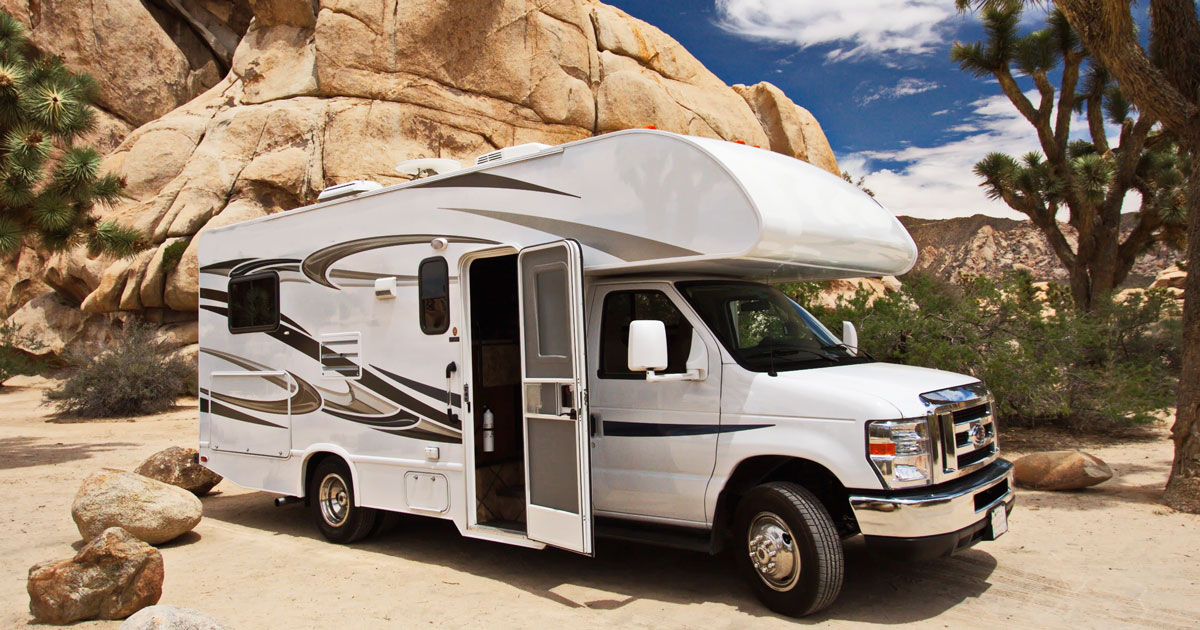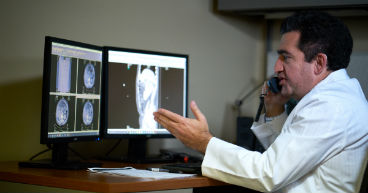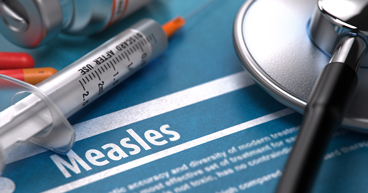
If you’ve been diagnosed with cancer, it may not seem like the right time to pack your life into a recreational vehicle (RV) and head for new horizons.
But for some cancer patients, hitting the open road in an RV is a way to make the most of life—before, during or after treatment—and set their sights on places they’d like to go and experiences they’d like to have. For those who travel long distances for their cancer care, RVs may offer many advantages over trains, planes and automobiles.
For instance, with an RV you can:
- Avoid crowded airports, airplanes and transportation terminals, which is important for cancer patients who are at higher risk of infection
- Pack what you need—and what you think you may need, including clothes for different weather conditions, food, medicines and medical equipment
- Spend quality time with your family, friends and loved ones
- Travel more comfortably with pets
- Travel at your own pace, going only as far each day as you want
- Relax and enjoy the open road, visit landmarks and stop at scenic overlooks
- Feel more at home than in a strange hotel room
- Unwind and decompress when your cancer treatments are over
A number of cancer care centers, including City of Hope® Cancer Center Phoenix and City of Hope Atlanta, dedicate parking spots with RV hook-ups (which may include cable TV, electricity, water and/or plumbing) available to make it easier for traveling patients while they get the medical tests, treatments and evaluations they need.
“Traveling by RV versus an airplane was more convenient,” says Wanda H., who traveled with her friend, Connie, and her dog, Sophie, from Las Vegas to City of Hope Phoenix for her cancer treatments. “Everything in the RV was self-contained. We each had our own bed, plus a bathroom with shower, kitchen and fridge for snacks and water. It was quite comfortable. We were able to park the camper in the City of Hope Phoenix parking spaces designated for RVs. We were also able to take Sophie for walks around the hospital grounds so we could all enjoy some fresh air and exercise.”
RV travel isn’t for everyone and can be challenging even for people with no health issues. Traveling in a motor home may require special planning to ensure you can get fuel and services when you need them. And for some, RVs may be more challenging to drive and maneuver in tight spaces and through narrow roads.
Tips for traveling by RV
If the open road is beckoning you, here are some tips and advice about how to make it possible, whether you’re in an RV, travel trailer, fifth wheel or any other type of camper.
Talk to your doctors
Any travel plans should start with a talk with your doctors, to make sure you understand any concerns they may have about and possible ways to mitigate them. It’s important to seriously consider any concerns your doctor may have.
Explore telemedicine options
The COVID-19 pandemic has created a surge in telehealth opportunities, meaning medical services don’t always have to take place at the doctor’s office or hospital. Many routine medical appointments can be handled using video hook-ups with your doctors, either over the phone or on the computer. If you’re traveling to remote areas lacking cellular service, make sure you know where you can go for access to Internet and/or phone service when an appointment is scheduled.
Have proper insurance coverage
One of your most important needs involves medical insurance—knowing what it covers, where it can be used and any other limitations it may have, so you’re prepared if and when medical services are needed. Pay attention to the fine print.
Primary health insurance. If you have a health insurance plan through your employer or that you purchased, you’ll need to know which type of provider network coverage is available when you’re on the road. Also, does your plan cover routine medical treatments when you’re away from home in addition to medical emergencies? Some plans are specifically designed for RVers. There’s even an RVer Insurance Exchange that can help you look into those policies.
Emergency assistance insurance. Travel insurance covering roadside assistance is a good idea to help in unexpected emergencies. However, when you have a health condition such as cancer or another chronic disease, you may want to consider getting an emergency assistance insurance, that helps coordinate emergency medical treatment. This may include transportation to an appropriate medical facility, transfer of needed medical documents and updating your family members about your situation. It’s important to make sure you’re covered for cancer-related issues and that your treatments aren’t exempted as a pre-existing medical condition.
Ensure access to medication
You don’t want to be without needed medications while you’re on the road. There are several ways to handle this, depending on the length of your travel:
Stay up to date on your prescription refills. If you’re not already on 90-day prescription supplies, see whether your doctors and insurance will allow them. The larger the supply you have on hand, the less time you’ll need for searching for a pharmacy for refills.
Use nationwide pharmacies for your prescriptions. National chains may make it easier to refill prescriptions no matter where you are. If you’re limiting your travels to a specific area, a regional pharmacy may also satisfy your needs.
Get deliveries at your RV park. Some pharmacies offer home-care delivery service that ships needed medicine, including injections, to any address of your choosing. It could be an RV park, a friend’s home or somewhere else you’re staying.
Bring plenty of water and healthy food
Gas stations, food stores and restaurants may be miles apart in remote rural areas. And in more congested areas, traffic may limit your options for stopping. Make sure the RV is stocked with healthy food and drinks. Wanda says to always carry extra water: “It’s important to stay hydrated, and there may not be a store or gas station convenient to getting off the highway.”
Establish a base of operation
It’s important to have a base of operations, maybe your home, where you can layover once or twice a year. This allows you to get most of your appointments and check-ups done with medical professionals you’ve built relationships with over the years. It’s also a good option to locate near your cancer care provider.
There may be times when your RV may not be comfortable enough for an outpatient treatment regimen you’re undergoing. The American Cancer Society’s Hope Lodge program provides free lodging in some areas to eligible cancer patients when they’re in treatment programs away from home.
Pace yourself when traveling
Although cancer may not keep you from traveling, you may not be able to handle the full schedule you once did. Make sure to pace yourself to avoid wearing yourself out. That may mean traveling shorter distances on a given day, making more frequent stops to stretch and move about, and staying longer at a destination to give your body time to recuperate.
“We enjoyed taking in the scenery together, pointing out wildflowers and wildlife to each other as we traveled the highway,” Wanda says. “You meet other RVers along the way, even just stopping to fill the gas tank or for a bite to eat. It’s fun learning where they’re from and talking about their RVs.”
Establish medical contacts near your destinations
Be ready for medical emergencies. You never know when something unexpected will occur. Find out in advance whether urgent care facilities or walk-in clinics are located near your next stop.
Having an arrangement with an RV park for storing your camper/RV if you may have to fly out for medical reasons on short notice is another good precaution.
Enjoy the moments
For Wanda and Connie, traveling to City of Hope Phoenix by RV allowed two old friends to make new memories and share special time together.
“During our road trips, Connie and I had lots of time to talk,” Wanda says. “We had been friends for many years, but our time on the road led to a deeper connection. We shared stories, laughed, prayed and encouraged each other. I really got to know and appreciate this wonderful friend who had so generously given her time to support me during my cancer journey.”

RV accommodations at City of Hope
Many City of Hope patients travel hundreds of miles for their cancer treatments. Traveling by recreational vehicle is a beneficial option for some immune-compromised cancer patients who want to avoid crowded airports and reduce their risk of infection.
That’s why we offer RV accommodations for patients and their families traveling to City of Hope Phoenix and City of Hope Cancer Center Atlanta.
RV spaces may be booked, when available, to patients for a fee when scheduling a hospital appointment.
Guests are asked to check in with the hospital’s guest services team when they arrive or the next morning, if they arrive overnight.
For more information on RV accommodations, call:
Atlanta: (770) 400-6350
Phoenix: (623) 207-3530



